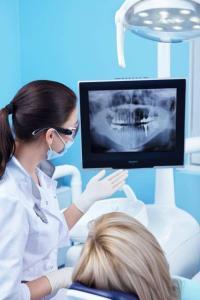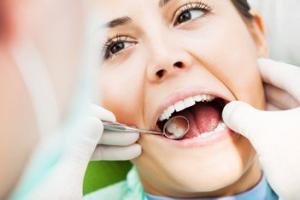Do I really need to get my teeth X-rayed at the Dentist? (What if I’m pregnant?)
Yes! But let us reassure you that we only take X-rays when necessary.
X-rays reveal issues that we simply can’t perceive with the naked eye. This is very important in the prevention of dental problems. The alternative of having a mouth of infected teeth is far riskier, health wise, than the supposed risk of radiation from a dentist’s X-ray machine.
At our practice, we use digital X-ray imaging. For what it’s worth, these machines emit only a tenth of the radiation given off by earlier generations of X-ray machines. To put it in perspective: You get more radiation from carrying a cell phone around in your pocket all day.
One interesting misperception that we sometimes hear is that pregnant women shouldn’t get an X-ray. Again, we don’t take X-rays except when necessary, and we care deeply about our patients’ health, but—a mother’s mouthful of infected teeth is far riskier for the health of her baby than the exposure of an X-ray machine. Studies have shown a connection between oral infections and low birth rate and premature birth.
This issue is even addressed on the American Pregnancy Association website, by the way, so you don’t have to just take our word on this:
“Preventive dental work while pregnant is essential to avoid oral infections such as gum disease, which has been linked to preterm birth…
“No single diagnostic x-ray has a radiation dose significant enough to cause adverse effects in a developing embryo or fetus.”
The site suggests that expecting mothers should perhaps wait until after the child is born to do cosmetic procedures, such as tooth whitening. We would tend to agree with that recommendation.


